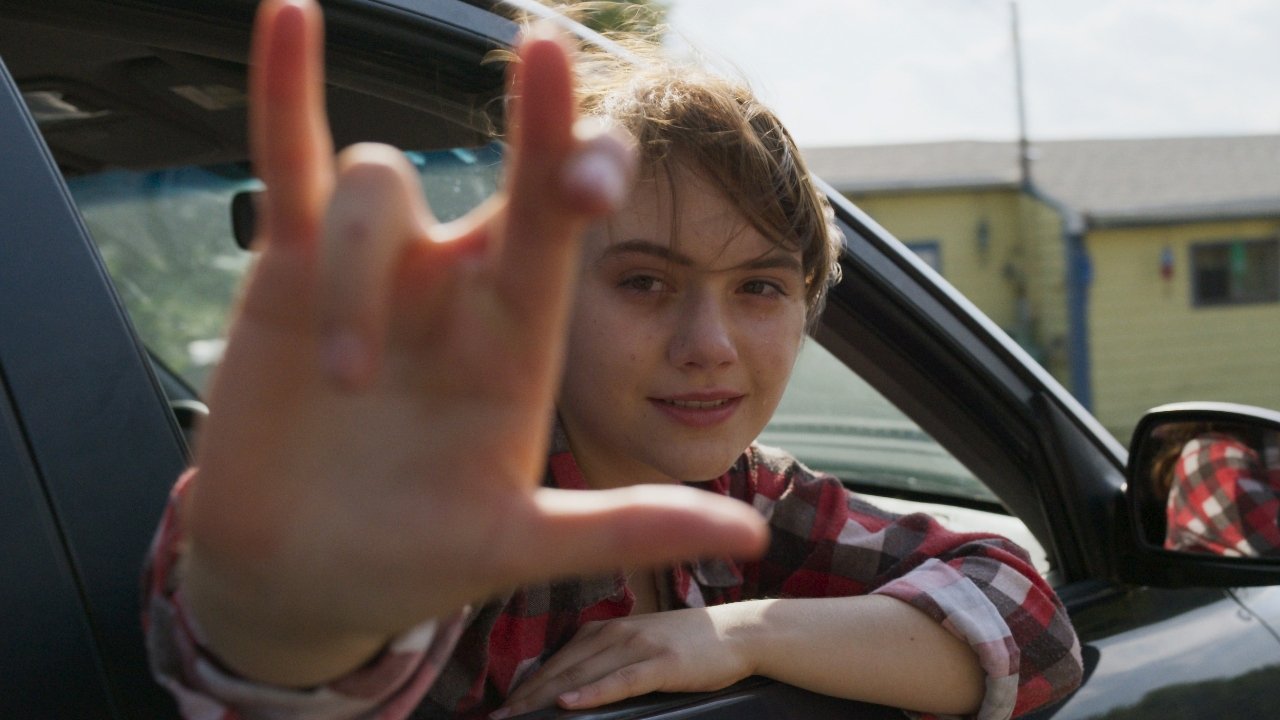The Streaming Oscars Finally Arrive; When Will the Streamed Oscar Ceremony Come?
After the most eventful and emotion-stirring awards in many years, the Motion Picture Academy gave out its first streaming Best Picture Oscar, to CODA, a Sundance darling otherwise watched almost solely through Apple’s two-year-old Apple TV Plus

Partway through the HBO historical drama The Gilded Age, presiding doyenne Mary Astor complains to a confidant about the influx of Robber Baron nouveau riche hoping to crash The 400, her zealously tended roster of the “acceptable” society families in 19th Century New York City.
The problem, her confidant noted, is if you try to keep them all out, they’ll just start their own high society and cut you out. You have to let some in.
We are now at that point with a very different and equally fusty exclusive society, the Academy of Motion Picture Arts & Sciences, which finally has been “letting some in” these past few years, in response to #OscarsSoWhite, #MeToo, and #BlackLivesMatter, and a push for broader international representation. Now, add streaming to the list of movements in more or less full standing with the Academy as it recognizes the full business and art of cinema.
Finally, after the most eventful and emotion-stirring awards in many years, the Motion Picture Academy gave out its first Streaming Best Picture Oscar to CODA, a Sundance darling otherwise watched almost solely through Apple’s two-year-old Apple TV Plus.
Now, the big question: with a Best Picture Oscar and Ted Lasso’s Best Comedy Emmy already in hand, will Apple CEO Tim Cook disclose more financial details about Apple TV Plus than the occasional sizzle reel at product announcements? Nah, probably not.
CODA also won adapted screenplay for director Sian Heder and a historic supporting actor statue for deaf actor Troy Kotsur, whose signed acceptance speech was an emotional highlight in a night stuffed with them.
In winning, CODA beat out early insider favorite The Power of the Dog for Best Picture, leaving distributor Netflix once again at the altar, but so proud to be there, especially after Jane Campion made history by winning Best Director, only the third woman to do so. Netflix’s deeply polarizing satire Don’t Look Up also made the big 10, but was shut out amid all three of its nominations.
NEXT TV NEWSLETTER
The smarter way to stay on top of the streaming and OTT industry. Sign up below.
It was in some ways an even bigger night for another film that lived as much online as off, WarnerMedia’s Dune. The sci-fi epic won six Oscars, the most of the night, for behind-the-camera categories cinematography, editing, visual effects, sound, score, and production design.
Though Dune’s $400 million global box office gross was by far the most successful theatrical film release of the 10 Best Picture nominees, it likely also was one of the two or three most watched online, too, debuting on HBO Max the same day it hit theaters. Third-party metrics from several companies suggest that lots of pandemic-wary fans skipped theaters to watch or re-watched its vast scope unfold on their big-screen TV at home.
The good news for WarnerMedia, as it prepares to spin out of the uncertain embrace of AT&T and into the even more uncertain embrace of Discovery, is that Denis Villeneuve’s enchanting translation of Frank Herbert’s classic novel only covers the first half of the sprawling book. A sequel is already underway.
Even better, the first Dune novel spawned five sequels by Herbert and another 21 prequels co-written by his son. There’s enough IP to keep the company busy until long after Warner Bros. Discovery gets sold to a cryptocurrency company.
Kotsur’s delightful and thoughtful speech was soon upstaged, when an outraged Will Smith charged the stage to slap presenter Chris Rock in the face for joking about his wife’s hair-loss challenges.
Minutes later, Smith won his first Oscar, for WarnerMedia’s King Richard, the story about the father of two of the greatest tennis players in history, Venus and Serena Williams. Like Dune, it got a simultaneous streaming and theatrical release. Given its mediocre theatrical showing ($38 million worldwide), most of the viewing happened online, far from the hacking coughs of Delta-variant theater attendees.
A tearful Smith used his awards speech to apologize to the academy and other nominees, though not to Rock, saying of the character he played in King Richard, “Richard Williams was a fierce defender of his family … Art imitates life. I look like the crazy father, like Richard Williams. But love will make you do crazy things.”
Even Costume Design went to a film that lived large online, Cruella. With the pandemic raging, Disney sent Jenny Beavan’s over-the-top designs and all the rest to Disney Plus in late May as part of its short-lived Premium VOD experiment. Though Cruella fashioned $233 million in theaters, the live-action prequel-reboot-whatever also was sold to Disney Plus subscribers for $30.
Disney’s Encanto won Best Animated Feature, even though it and two other Mouse House animated nominees, Luca and Raya and the Last Dragon, only ran on Disney Plus. Encanto’s biggest competition was a Netflix film produced by Sony, The Mitchells vs. The Machines.
The Best Documentary Feature winner, Summer of Soul (…Or When The Revolution Could Not Be Televised), was finally televised, on Hulu, half a century after its joyful musical performances were first recorded on a Harlem outdoor stage. After an opening-night debut last year at Sundance (against CODA), Summer grabbed only $3.7 million in theaters, but likely became a video soundtrack for a lot of house parties thanks to its Hulu presence.
As director Ahmir “Questlove” Thompson put it in another emotional speech, “this is a film that (my parents) should have taken me to when I was 5.” That didn’t happen, but the Academy seemed delighted to atone for the historic oversight that left festival footage in storage for decades.
Before Kotsur, Thompson, and Smith did their bits to make this Oscar ceremony truly electric, I was pondering how long such a show can remain on broadcast. Yes, it’s still one of the bigger non-NFL ratings attractions. And yes, Disney used it to cross-promote nearly everything related to video that it makes, from local news to a handful of Hulu series, the Disney streaming bundle, breakout ABC hit Abbott Elementary and more.
The advertisers included big names such as Rolex, whose homage to cinema seemed relatively tone-deaf next to repeated and simple fundraising ads in support of Ukraine by blockchain company crypto.com. The Academy relies on revenues from the Oscar telecast as a major bulwark in its operations, including film preservation, education and other programs, so as long as the advertisers keep showing up, maybe Oscar will too.
But it’s also possible that, like so many other stalwart components of traditional broadcast/basic cable programming, as some point the Oscars will be streamed as much as the movies they’re awarding.
Online, having the show run late might be less of an issue, allowing viewers to dispense with segments they don’t care about, or add new ones. One small addition this year was fan polls (notable outcome: Netflix’s zombie apocalypse Army of the Dead was the No. 1 “fan favorite movie”). Maybe we can start adding live prop bets, interactive data on previous award trends, and gambling courtesy of Draft Kings or MGM Mirage?
As well, the Academy could add an even more inclusive In Memoriam segment, better honor those banished categories, dive deeper into the lifetime achievement award winners and make it easier to understand what the science and technology winners actually won for. And certainly, many fans might enjoy deeper explorations of such favorites as the James Bond franchise and The Godfather trilogy, which both had brief anniversary spotlights Sunday night.
A streamed awards show might even provide room for a new category or two, like one for stunt performers. Why not? The academy actually has come quite a ways over the past five years (though admittedly, from very far back). Maybe there are still a few steps forward that it can take.
David Bloom of Words & Deeds Media is a Santa Monica, Calif.-based writer, podcaster, and consultant focused on the transformative collision of technology, media and entertainment. Bloom is a senior contributor to numerous publications, and producer/host of the Bloom in Tech podcast. He has taught digital media at USC School of Cinematic Arts, and guest lectures regularly at numerous other universities. Bloom formerly worked for Variety, Deadline, Red Herring, and the Los Angeles Daily News, among other publications; was VP of corporate communications at MGM; and was associate dean and chief communications officer at the USC Marshall School of Business. Bloom graduated with honors from the University of Missouri School of Journalism.

